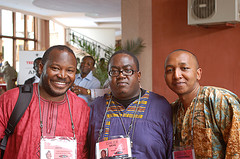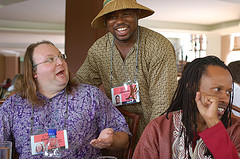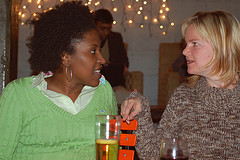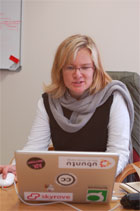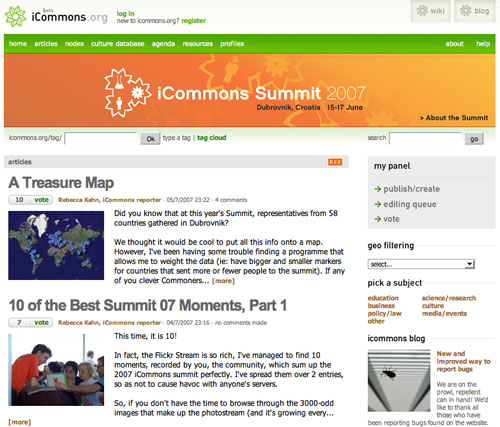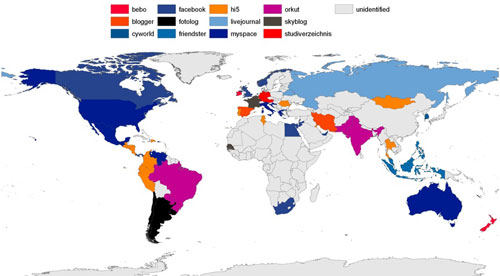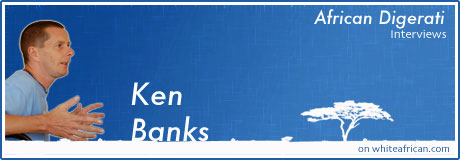
Ken Banks is the 6th in the African Digerati series of interviews. Ken has become a recognized leader in the mobile space in Africa, primarily through his open source text messaging hub called FrontlineSMS. He speaks regularly around the world on the use of mobile technologies to meet the demands of the real world in places like Africa.
Blog and/or website:
You can find more information on Ken Banks at www.kiwanja.net. Including information on his projects, his mobile database, pictures and blog. It’s one of the best resources for information on mobile technology for Africa on the web.
What do you do?
I use a mix of 22 years in IT, 14 years working on and off in various parts of Africa, and a degree in Social Anthropology with Development Studies to help local, national and international non-profit organisations make better use of information and communications technology – particularly mobile – in their work. I’m usually based out of the UK (where I have a small flat in a lovely Cambridgeshire village), but am currently a Visiting Fellow at Stanford University on the Reuters Digital Vision Program. To pay the bills I do a mixture of paid consultancy and pro-bono work for a range of NGOs, working mostly at grassroots level, a place where I strongly believe the greatest change will come
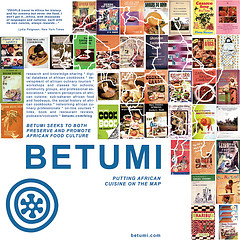
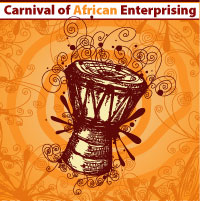
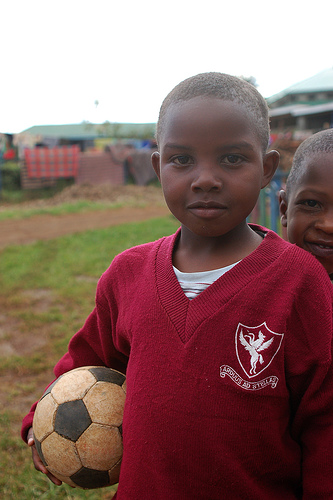 Four of the AfriGadget editors descended upon Limuru, Kenya to visit the
Four of the AfriGadget editors descended upon Limuru, Kenya to visit the 